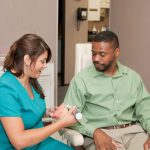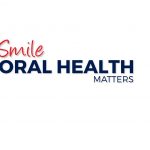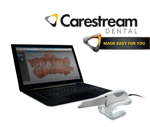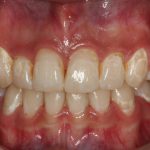Members of one of the UK’s leading royal medical colleges have warned of the dangers of a no-deal Brexit in a new survey. The membership of the Royal College of Physicians and Surgeons of Glasgow have sent out the call as Brexit negotiations in Brussels reach a critical stage.
In a membership survey carried out online by the College between the 5th and 11th of October:
· 79 percent of respondents say that a no-deal Brexit will have a negative or strongly negative impact on the NHS
· 44 percent of respondents report that their employer is failing to plan effectively for the potential impact of a no-deal Brexit
· 67 percent of respondents report that the UK Government is failing to plan effectively for the potential impact of a no-deal Brexit on the NHS
The survey was carried out of the College’s UK-based membership, and was prepared as part of the College’s submission to the House of Commons’ Health and Social Care Committee’s current inquiry into the potential impact of a no-deal Brexit on the health sector in the UK.
In the submission, the College’s Honorary Secretary, Dr Richard Hull, stated:
“The Royal College of Physicians and Surgeons of Glasgow is deeply concerned that Brexit may have a seriously negative impact on health and social care across the UK if the UK government is unable to negotiate a comprehensive agreement with the remaining EU member states on our future relationship.
“It is of significant concern to us that our membership clearly lacks confidence in the current contingency planning process for a no-deal Brexit. We believe that both NHS employers and the UK government should reflect on these results, and take immediate action to ensure that everything possible is being done in the coming weeks and months to ensure that the high standards of care currently provided by our health and social care system are able to be maintained when the UK leaves the EU in March 2019.
“This should include:
· Agreeing a cooperative regulatory framework between the Medicines and Healthcare products Regulatory Agency (MHRA) and the European Medicines Agency (EMA), which would allow the smoothest transition in terms of the authorisation of medicines for use in the UK, safety and pharmacovigilance
· Maintaining close working links with the European Centre for Disease Prevention and Control in order to maintain public health
· Avoiding a situation where there is a need for the imposition of trade barriers, including non-tariff barriers, on medical goods and services
· We also remain particularly concerned about the potential impact of a no-deal Brexit on patient care in Northern Ireland given the current level of cross- border cooperation with the health service in Ireland
“We also remain concerned that there is significant uncertainty within our membership on the future status of EEA nationals who have already chosen to come and work in the health and social care sector across the UK. This has the potential to significantly exacerbate existing workforce issues in the sector, with additional implications for the standards of care our membership is able to provide to our patients.”
“A no-deal Brexit would not deliver these essential actions. We believe that this would have the potential to significantly hamper the work of the NHS and its staff and would present a real and present threat to patient safety.”















